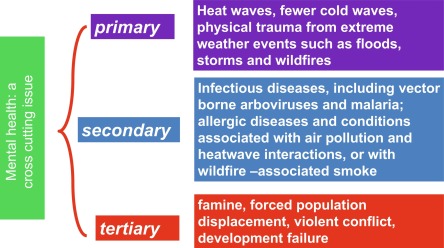Proper regulation is essential to ensure that such a system benefited those in need, and that those who provided organs are properly compensated. Without significant policy changes, however, far too many patients will continue to languish on waiting lists until they run out of time. The goal of SDG3 is that everyone should have a good health and well-being.
This paper assess parental and guardian perceptions of dental health service accessibility among primary school students Saudi Arabia.
This study supports SDG 3, 6, and 16 by providing a comprehensive quantitative analysis of the association between conflict and the incidence of cholera in Yemen, highlighting how conflict-related destruction has compounded water, sanitation, and hygiene issues in Yemen.
Human health, in the coming decades (and already in some “front-running” regions), is in peril. Although some authorities warn that over-stating such risks can induce paralysis and despair, under-stating them will not generate the intense action that is required. The impact of climate change on the Earth system is now so significant that the next ice age will likely be delayed by at least 50,000 years [201]. If humans do not rapidly change their collective behavior, then this may be their most enduring legacy. It is hoped that this chapter makes a small contribution to SDG3.
This article supports SDG 7 by evaluating the geothermal potential of the granitic rocks which is important in long-term sustainable renewable energy projects due to increasing energy demand.
With a pressing climate emergency and increasing interconnectedness, the need for action on health at a global level is greater than ever. Achieving Universal Health Coverage with a strong base in primary healthcare is essential. This must be accompanied by policies to address the socioeconomic and environmental determinants of ill health, supporting SDG3.
This paper provides the most recent and accurate quantitative and qualitative assessment of available water resources and demands in the GCC countries.
Elsevier,
Artificial Intelligence in Clinical Practice, How AI Technologies Impact Medical Research and Clinics
2024, Pages 395-399
To harness the power and promise of AI in global health, adequate investment must be made in communication, computer systems, and supporting personnel to collect, curate, and manage the data necessary to enable benefits and minimize harm from the use of AI-related tools. In developed countries, this has either occurred or is underway. Developing countries run the risk of widening the digital divide if this does not occur. This chapter supports SDG3.
Elsevier,
Translational Sports Medicine
Handbook for Designing and Conducting Clinical and Translational Research
2023, Pages 513-518
This chapter focuses on n the population and environmental considerations that impact how patients receive care, identify health concerns, and empower them to take initiative in their own care with the health teams surrounding their care supporting SDG 3.
To ensure sustainability, vertical or disease-specific programs or projects (government funded or external funded) should not develop standalone community participation interventions. They should be mandated to build on the existing social capital. The untied funds required for implementation of decentralized decision-making should be released in a timely manner without needless audit objections. Communities are not going to go anywhere. Hence, we need consistence in policy concerning community participation and patience from the administrators to implement community participation holistically with realistic sustainable short-term process indicators, while the focus is on medium- and long-term goals, including SDG3.

